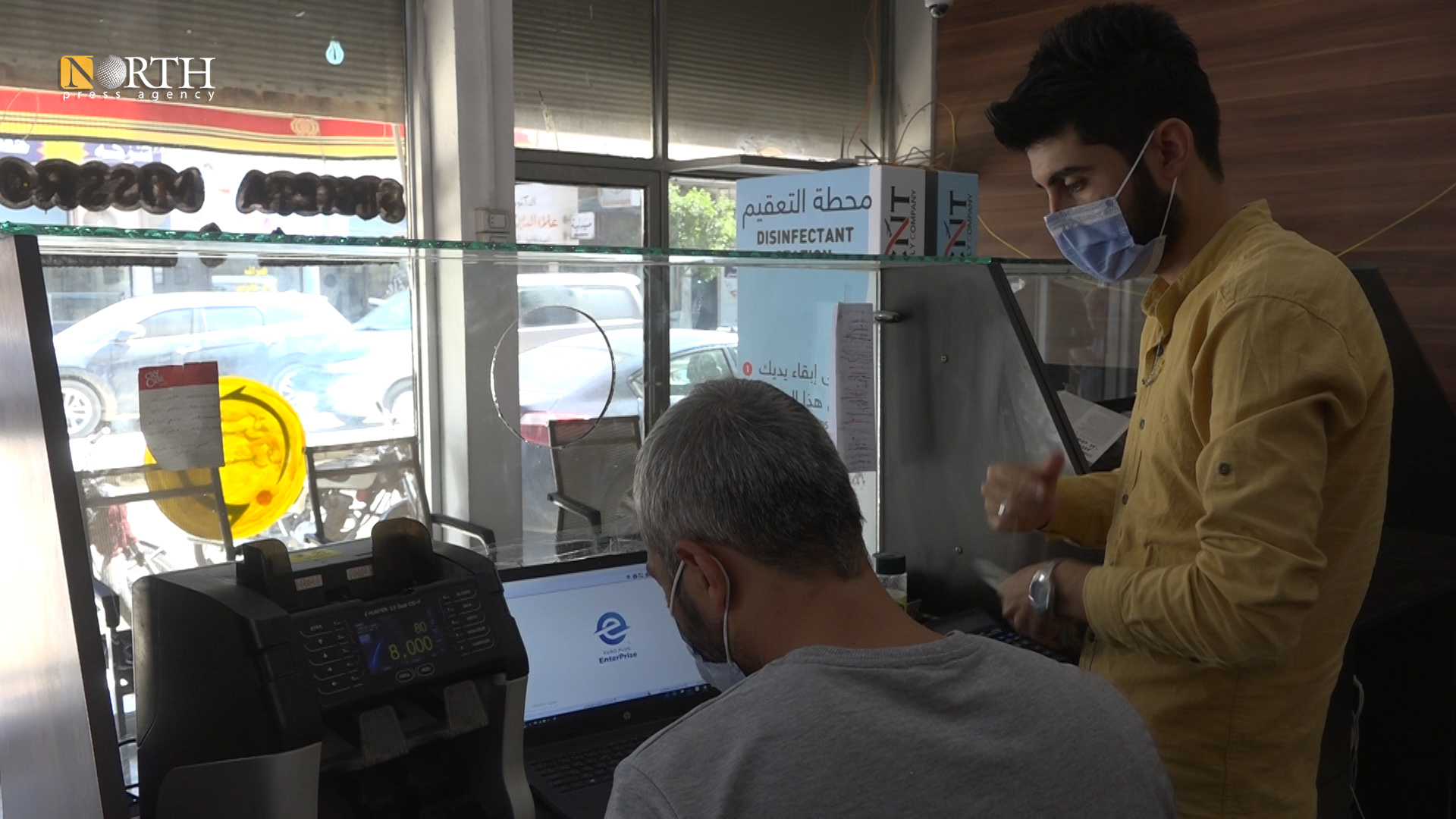Mixed reactions to legislation for currency exchange shops in Syria’s Kobani
KOBANI, Syria (North Press) – Some currency exchange shop owners in the northern Syrian city of Kobani welcomed new legislation regarding exchange shops that was recently issued in the Euphrates Region, considering the new legislation something that provides more structure to the profession.
However, others criticized the articles of the legislation, especially those related to capital and commercial registry, and say that some exchangers will be affected by the legislation.
Fahad Basrawi, an exchange shop owner in Kobani, said that he has been working in currency exchange for ten years and his capital was less than $5,000.
“I want to work with a capital of $1000 to provide for my children,” Basrawi told North Press.
The Legislative Council in the Euphrates Region, one of the administrative divisions in North and East Syria which includes the cities of Kobani and Serrin and their countrysides in addition to the countryside of Tel Abyad, issued Act No. 3 of 2020 on Saturday. The legislation includes 16 articles regarding the exchange profession.
The Act stipulates that the capital of the institution or company should not be less than $50,000 or its equivalent in Syrian pounds, and that the capital of those applying for a license for a currency exchange shop should not be less than $25,000 or its equivalent in Syrian pounds.
“There are five or six poor exchangers who do not have more than $3,000. They get up early, work on the sidewalk, and don’t harm anyone in order to secure a livelihood for their children,” Basrawi stated.
There are more than 50 exchange shops in Kobani, in addition to people who work on the sidewalks without a license, while there are only five large exchange companies.
“Let the Autonomous Administration provide us with job opportunities in case we lose our professions,” Basrawi added.
According to the new legislation, each exchange company or shop is allowed to sell and buy foreign currency and exchange it for Syrian pounds, but they are not allowed to issue IOUs to customers.
Additionally, the exchange companies and shops should have a license, and the license applicant should have a commercial registry. They are also not allowed to practice any other job in the shop, and the shop must be equipped with security cameras.
“The new legislation will benefit some and harm others, but it will organize the exchange profession,” Masoud Muhammed, an exchange shop owner in Kobani, said.
“There are children, 10 or 12 years old, who come to exchange money. We don’t change their money, but if they are neighbors, and we know them, we normally exchange for them,” Masoud said.
Article 14 of the legislation prohibits doing business with customers under 18 without their parents or guardians present.
Meanwhile, exchange shop owners in Kobani believe that they should pay no new fees for a new license for shops that already obtained a license from the Commerce Department.
Dilshad Keiko, an accountant in an exchange company in Kobani, said that installing cameras was a good thing for all parties involved in case any error, disagreement, or theft happens.
“As for banning any other work within the money exchange, it is a good thing; for example, wholesale shop changers buy and sell currency in their shops, which affects us,” he added.
“In Masro company, we have everything; we have cameras, and our budget is more than $50,000, so we have no problem with the new legislation,” he stated.
Hussein al-Sheikh, deputy co-chair in the Legislative Council in the Euphrates Region, believes that the new legislation will organize the exchange profession in the Euphrates Region.
The owners of exchange shops and companies should prepare their conditions to work according to the new legislation within three months, al-Sheikh added.

